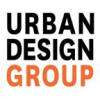Snabbfakta
-
- London
Ansök senast: 2024-08-23
Phd: Designing inclusive Blue and Green Infrastructure and landscape
About the Project
Many cities have a significant amount of grey infrastructure (paving and asphalt) and dysfunctional green or blue spaces. Access to and use of green and blue space are disproportionately limited in areas of deprivation, and further affected by poor air quality, heat stress, and flooding. Building long-lasting green and blue connections will be important in ensuring the BGIs deliver benefits to all over time. Bridging the gap between theory and practice requires communication with policy makers and the public about the opportunities and implications of BGIs. There are proven and emergent novel approaches to planning, which include what if bespoke scenario planning, citizen assemblies and citizen-empowered data-driven decision making that can engage stakeholders to explore more just pathways to action. These can enable policy makers to make better strategic decisions with communities to mitigate climate change risks, keeping the city resilient, liveable and accessible for all.
The main aim of this PhD is to develop an inclusive framework, learning from six pioneering cities who are integrating futures scenarios and action in order to:
(1) embed progressive principles for the field;
(2) enhance the inclusivity of decision-making for urban spaces in order to deliver important ecosystem services;
(3) provide resilience and equal access to green and blue spaces in a changing climate; and
(4) share evidence of best practice.
Mixed methods will integrate design with science, policy and practice to build understanding and to explore the added value that place-based approaches can deliver. The research will develop a case study approach incorporating:
(i) what has worked in BGI across different socio-cultural, economic, environmental and temporal contexts, and
(ii) employ a combination of impact-driven design-thinking and participatory methods to capture successful practices, which may challenge dominant measures of climate change mitigation and adaptation.
The research will undertake:
(1) a review of best international practices on how cities become climate resilient;
(2) assess the vulnerability to climate change in a subset of cities (see Urban ReLeaf), using a range of analytical and visualisation tools;
(3) develop a framework for established and emergent futures methods, including what if bespoke scenario planning to align with strategic planning timelines;
(4) review inclusive consensus building and co-design methods to establish benefits for a greater resilience.
Outcomes and potential impact include:
(1) an integrated framework and visual map interface for what if scenarios for 2030, 2050 and 2070 to support decision making in a selected city towards integrated BGIs;
(2) two policy briefs
(3) presentations at conferences;
(4) In-house workshop presentations to key organisations as agents for delivering resilient and healthier city;
(5) a minimum of one high impact journal paper. As part of the Urban ReLeaf project, the PhD researcher will have the opportunity to benefit from placement and case study opportunities with both UK and EU cities and partners, learning from best practices and policies. Additionally, the PhD researcher will be able to take advantage of training opportunities, capitalising on the established links the supervisory team has with the Hydro Nation Unit at the Scottish Government, Dundee City Council, and the Central Scotland Green Network.
For informal enquiries about the project, contact Professor Mel Woods: or
APPLICATION PROCESS
Step 1 - Applicants are recommended to make contact as early as possible ahead of the deadline with the lead supervisor and (1) send a copy of your CV and (2) discuss your potential application and any particular needs.
Step 2 - After discussion with the lead supervisor, formal applications can be made via the following form: REGNR8-I Scholarship Application ;Please use this form instead of the register of interest form below.
QUALIFICATIONS
Applicants should have first-class, or an upper second-class ( Honours degree AND a Masters degree in discipline(s) relevant to their selected topic.
English language requirement: IELTS (Academic) overall score must be at least (with not less than in reading, listening, speaking and in writing). The University of Dundee accepts a variety of equivalent qualifications and alternative ways to demonstrate language proficiency; please see full details of the Universitys English language requirements here: ;













